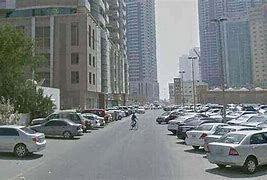Dubai’s Roads and Transport Authority (RTA) and Dubai Police General Headquarters have announced a new restriction on truck movement along Emirates Road (from Al Awir Street to Sharjah) during evening peak hours, from 5:30 PM to 8:00 PM. The restriction will take effect on 1 January 2025 and is aimed at easing traffic congestion and enhancing road safety.
Expanding Truck Movement Bans Across Dubai
This move aligns with RTA’s strategy to expand truck restrictions on key roads in Dubai. The Emirates Road ban builds on the April 2024 expansion of truck bans on Sheikh Mohammed bin Zayed Road during morning and evening peak hours. The decision comes after comprehensive studies to ensure a balance between transportation needs and road safety.
Key restricted roads and timings include:
• Al Ittihad Street, Meydan Street, and all Dubai crossings: Prohibited at all times.
• Sheikh Zayed Road and residential areas like Al Mizhar, Al Muhaisnah, and Oud Al Muteena: 16-hour ban (6:00 AM – 10:00 PM).
• Medium-congestion urban areas, including Airport Street, Oman Street, and Damascus Street: Restricted during 6:30–8:30 AM, 1:00–3:00 PM, and 5:30–8:00 PM.
Enhancing Road Safety and Traffic Flow
Major General Saif Muhair Al Mazrouei, Acting Assistant Commandant for Operations Affairs at Dubai Police, highlighted the initiative’s dual goals:
1. Reducing traffic accidents caused by heavy vehicles during peak hours.
2. Easing congestion on Emirates Road to improve the flow of light vehicles.
He emphasized extensive coordination with transport companies to ensure compliance and awareness, noting that violators would face penalties. Public awareness campaigns will include media announcements, social media updates, and road signs.
Supporting Drivers Through Truck Rest Areas
To support truck drivers and minimize disruption, RTA has implemented a developmental plan for 19 truck rest areas in collaboration with the private sector. These facilities are strategically located along major roads, including Sheikh Mohammed bin Zayed Road, Emirates Road, and Dubai-Al Ain Road, and provide:
• Diesel refueling stations.
• Residential motels and rest areas.
• Maintenance workshops and administrative services.
• Restaurants, clinics, prayer rooms, and other essential amenities.
Integrated Stations for Driver Welfare
The plan also includes three state-of-the-art integrated stations prioritizing driver safety and comfort, offering services like truck maintenance, driver training, pharmacies, and exchange centers.
Key Benefits of the Truck Ban:
• Improved safety: Reducing truck-related accidents during peak hours.
• Enhanced traffic flow: Alleviating congestion on critical roads.
• Environmental sustainability: Reducing fuel consumption and emissions.
Collaboration and Compliance
Hussain Al Banna, CEO of the Traffic and Roads Agency at RTA, emphasized the importance of collaboration among stakeholders, including Dubai Police, DP World, and Dubai Airports, to ensure the ban’s success. He urged truck drivers and transport companies to use alternative routes or designated rest areas during restricted hours to avoid fines and ensure smoother operations.
This proactive measure is part of Dubai’s broader efforts to create a safer, more efficient traffic environment, benefiting residents and businesses alike.































